Experiencing Japanese Studies in Practice: HSE University Strengthens Cooperation with Japanese Universities
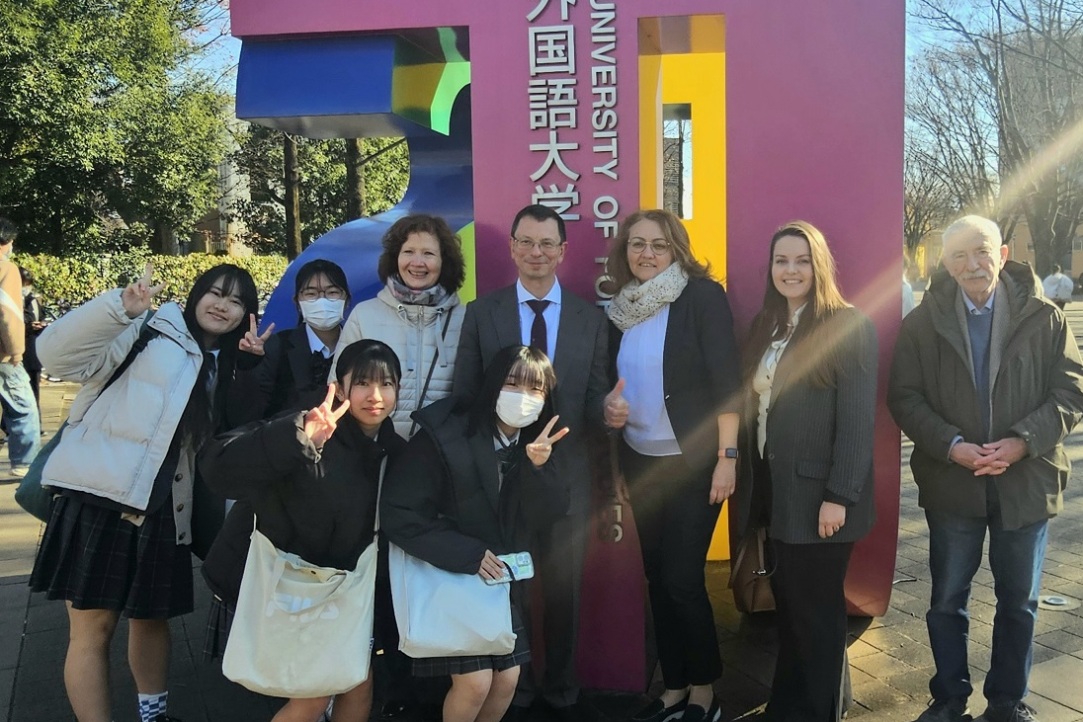
In December, a delegation from HSE University, led by Rector Nikita Anisimov, visited Japan to strengthen educational and scientific cooperation. Representatives from HSE University met with the leaders of prominent institutions in Russian studies, including Tokai University, Tokyo University of Foreign Studies, Hosei University, and Keio University. The visit, initiated at the invitation of the Japanese Ambassador to Russia, marked the first official visit by a delegation from a Russian university to Japan since 2022.
During meetings with their Japanese counterparts, representatives from HSE University discussed opportunities for collaboration in academic exchanges, research, and online education programmes for Japanese students at HSE University. Nikita Anisimov emphasised that universities are centres for creating the future, making it essential to sustain and strengthen their collaboration. 'Russia and Japan share a rich history of scientific, educational, and cultural collaboration. For example, nearly 500 students study Japanese at HSE University, which also hosts Japanese students and employs Japanese teachers,' he said.
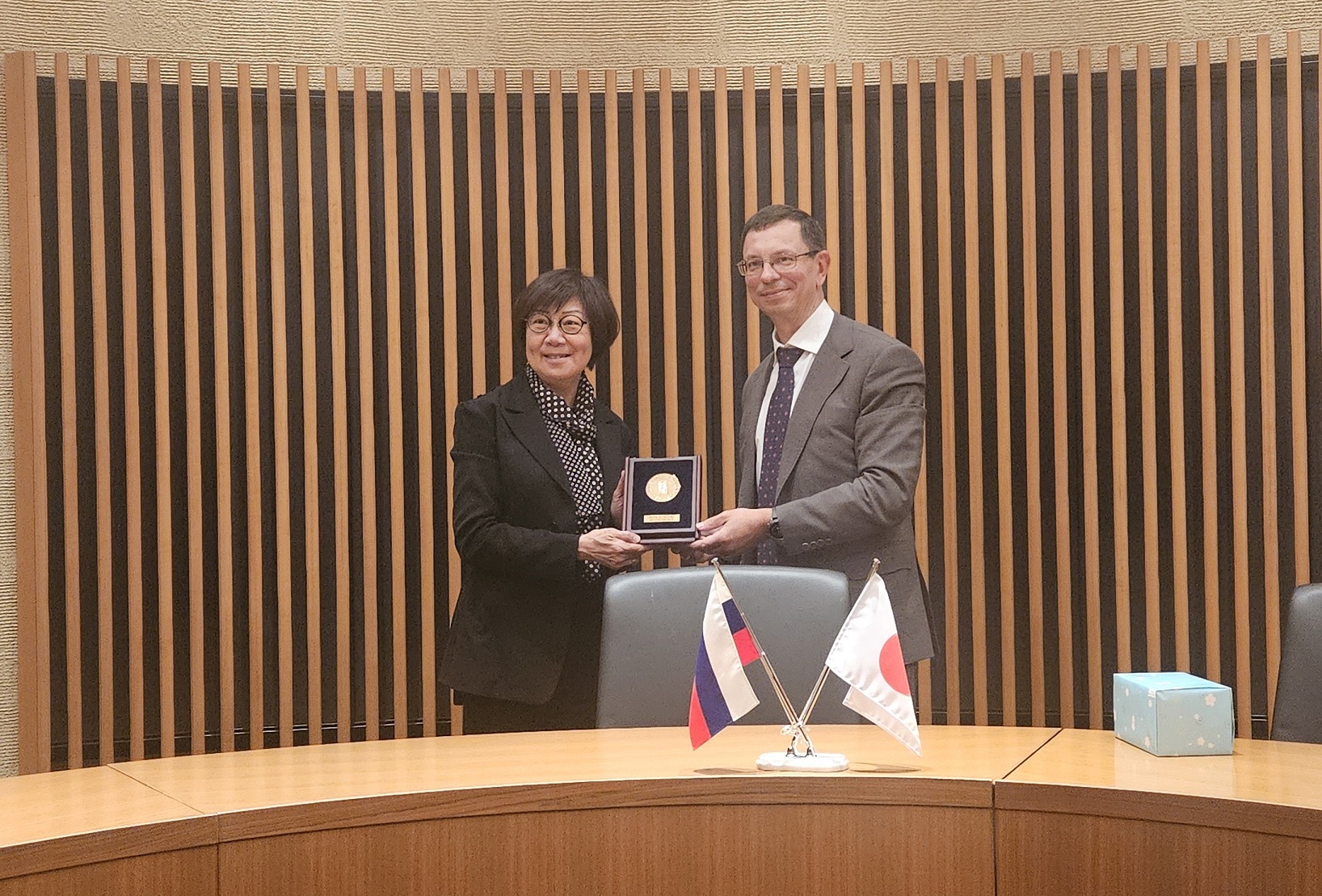
Diana Khor, Vice President and incoming President of Hosei University (set to take office in May 2025), highly praised HSE University’s approach to online learning and commended the high level of language proficiency among its researchers. She also highlighted the interest of Japanese students and faculty in collaborating on joint papers and conference presentations, particularly in the fields of culture and art.
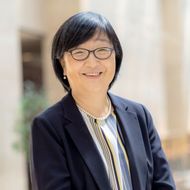
Kayoko Hayashi
Kayoko Hayashi, President of Tokyo University of Foreign Studies (TUFS), remarked that TUFS is Japan's oldest institution with a focus on Russian studies. Currently, around 300 people at the university are studying Russian, and there is ongoing interest in internships in Russia. The parties agreed to participate in HSE University's International Academic Cooperation Competition, which focuses on fostering international research collaborations and establishing joint laboratories.
Nikita Anisimov also met with Kiyoshi Yamada, Professor and Member of the Board of Trustees of the Tokai University Educational System (the HSE Rector holds Honorary Doctorate in Natural Sciences from Tokai University), during which the educational and research opportunities offered by HSE University were presented. Professor Yamada noted that the two universities have a longstanding and strong relationship, and Tokai University is open to discussing potential formats for collaboration.
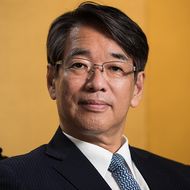
Toyohisa Kozuki
Toyohisa Kozuki, Professor at Tokai University and former Japanese Ambassador to the Russian Federation, positively assessed the efforts to strengthen ties between the universities. 'The door for academic cooperation between Japan and Russia remains ajar, and joint activities in this area, especially student exchanges, are welcomed despite a number of restrictions,' Toyohisa Kozuki said.
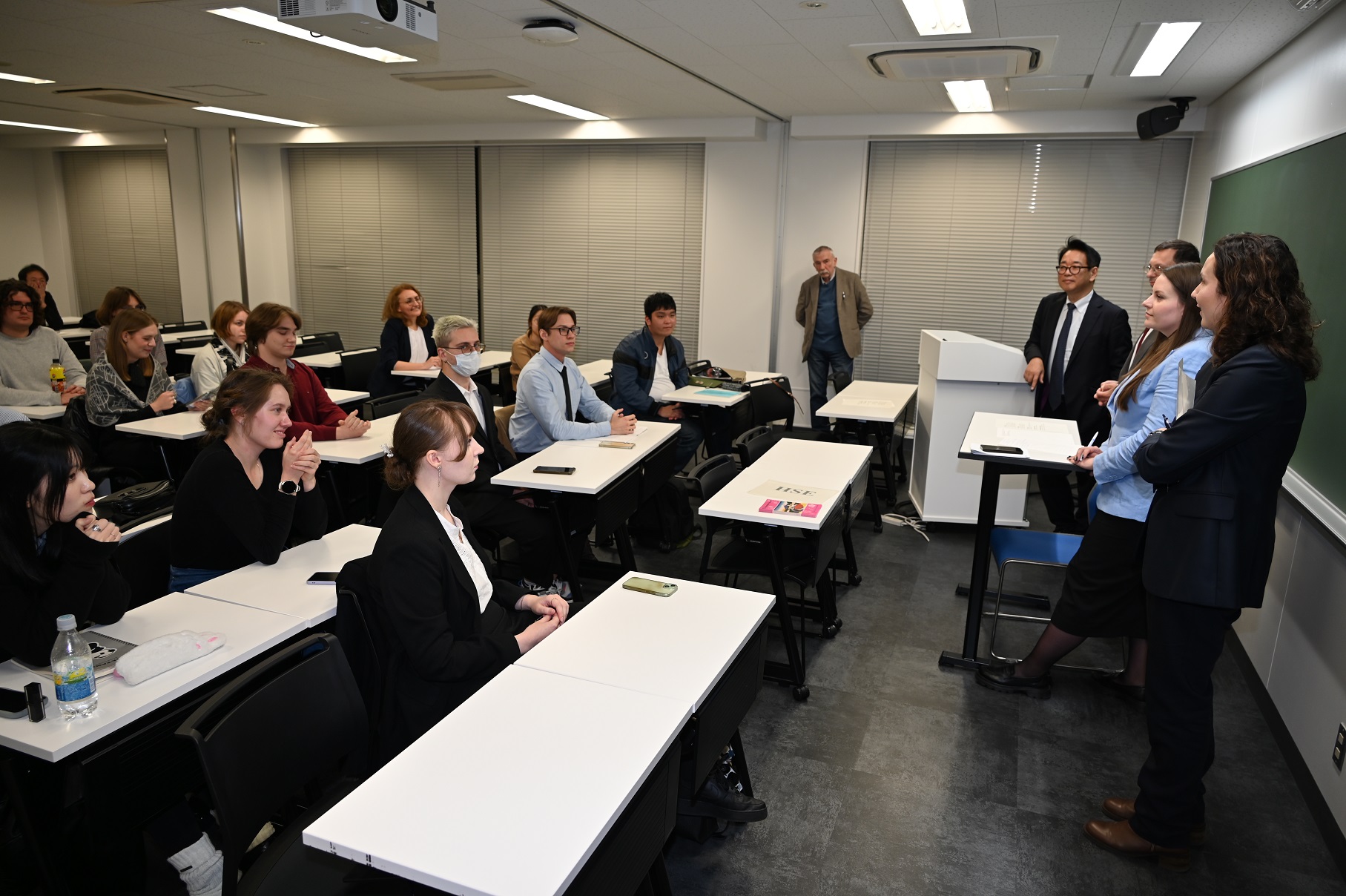
Tokai University also hosted a meeting with HSE students participating in mobility programmes at various universities across Japan. This semester, 25 students in Asian Studies and Economics are completing internships here. During the meeting, they discussed the specifics of studying and living in Japan. 'It is appealing that HSE University offers excellent opportunities for internships in the country where the studied language is spoken. This is my second internship in Japan. Before coming to Tokai University, I studied at Nagoya College of Foreign Languages. I am grateful to my teachers at HSE University and Tokai University for providing me with the opportunity to experience Japanese studies in practice,' said Alexandra Repina, a fifth-year student of the Asian and African Studies programme.
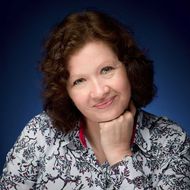
Maria Kiseleva
Following the trip to Japan, HSE University in St Petersburg will develop an online course on the History and Culture of Russia, to be taught in both Russian and Japanese, for students at its Japanese partner universities. The estimated duration of the course will be between two weeks and a month, and it is expected to launch in 2025, according to Maria Kiseleva, Head of the International Office at HSE in St Petersburg . She mentioned that online schools in the Russian language and culture for Japanese students may also be offered. In addition, HSE researchers from Moscow and St Petersburg are expected to determine the focus of their scientific work in order to apply jointly with Japanese partners for a competition of collaborative basic research projects.
In November 2024, representatives from HSE University made a working visit to Japan, during which they visited eight universities and organisations in Tokyo and Kyoto. Following the trip, an online Japanese language seminar was launched at the Department of Japanese Studies of HSE University in St Petersburg, in collaboration with Sofia University and Nagoya College of Foreign Languages.

Ksenia Shevtsova
'HSE University is committed to ensuring equal student exchange, and we are prepared to collaborate with the Japanese Embassy in Russia and interested partner universities to explore opportunities for Japanese students to participate in internships and projects at HSE University under the current circumstances. One such project could be the International Study Tour Experience, according to Ksenia Shevtsova, Head of the International Partnerships Office.
See also:
HSE University-St Petersburg to Launch Online Course on History and Culture of Russia for Japanese Universities
A delegation from HSE University-St Petersburg headed by Director Anna Tyshetskaya has visited more than ten universities in Japan to strengthen research and academic cooperation. HSE representatives met the heads of the country's leading universities, including Soka University, Tokai University, Sophia University, Hitotsubashi University, Hosei University, Osaka University, Kwansei Gakuin University, Tokyo University of Foreign Studies, and others. Among the priority areas of cooperation are humanities and Asian and African research, online training, and academic exchange programmes.
‘Learning Japanese Is a Long-Distance Race’
How can one master kanji, even with the help of sports, and why is Japanese Studies considered the pinnacle of Asian Studies? In this interview dedicated to the Japanese language, Vasilii Shchepkin and Olga Klimova discuss specific features of the language, the reasons for and experiences of learning it, as well as translation practices.
Fortunes, Cards, and Sweets: School of Asian Studies Holds Japanese Bōnenkai Celebration
For a few hours, HSE University transformed into a Japanese enclave in the heart of Moscow as the campus hosted a traditional bōnenkai end-of-year festival. The Musubi Japanese club of the School of Asian Studies invited anyone interested to find out what kadomatsu are, how to make traditional nengajo New Year’s cards, and to take part in some New Year’s traditions they might not be familiar with.
‘I Have Felt Welcomed Since the Very First Day’
Yohei Shiiba from Japan, Eunsong Gu from the Republic of Korea, together with Luca Volponi and Nicola Bressan from Italy shared their impressions of living in Moscow and studying on the English-taught Master of International Business (MIB) programme, which is open to students from all over the world.
HSE Signs Cooperation Agreement with Hitotsubashi University
On June 19 the Higher School of Economics signed a cooperation agreement with Hitotsubashi University in Japan. The agreement covers mutual visits for lecturers and researchers, student exchange programmes, as well as joint research projects, academic events, and publications.
Challenges Faced by Japanese Investors in Russia
Nina Ershova, Research Fellow at HSE Institute for Industrial and Market Studies, examined Japanese companies' experience of investing in Russia. Her paper "Challenges for foreign investors in Russia: the case of Japanese companies" is based on findings from a survey of 32 companies — members of the Japan Business Club in Moscow, conducted between April and June 2015, and content analysis of twenty interviews with Japanese business, academic and NGO representatives conducted between 2008 and 2015.
Shimada Nobuo on Japanese Swords and the Japanese Soul
On the 15th May, 2015 Shimada Nobuo gave a lecture at HSE on Japanese Military Culture. Shimada Nobuo brought some swords from his own workshop and allowed his audience to hold them while he talked about the enduring Japanese interest in weapons of war and the Japanese soul. Owner of the Yamashiroya gallery and specialist on ancient artefacts, Mr Nobuo advises the Japanese ministry of culture and works with the Hermitage and other museums in St Petersburg and around the world helping them with their Japanese collections. He gave his talk in Japanese with Russian translation. He gave this interview to the HSE News Service.
Why Do Economies Stop Growing?
Professor Kyoji Fukao of the Institute of Economic Research, Hitotsubashi University in Tokyo will give an honorary lecture on "The Structural Causes of Japan's Lost Decades" at the XVI April International Academic Conference on Economic and Social Development. He talked to HSE English News Website in the run up to the conference.
HSE Hosts Conference for Junior Japan Experts
The sixth ‘New View’ conference for junior Japan experts has come to an end. The conference was organized by HSE’s School of Asian Studies together with the Japanese culture division of the Margarita Rudomino All-Russia State Library for Foreign Literature (Japan Foundation) and the Association of Japanese Studies.
Common Ground – Education and Research
On September 30, Yaroslav Kuzminov, rector of the Higher School of Economics, and representatives of the HSE met with a delegation from Japan’s Tohoku University led by the university’s president, Susumu Satomi. Both sides signed university-wide agreements on cooperation and academic and students exchange between the universities in the fields of linguistics, economics and management and other areas of mutual interest.


